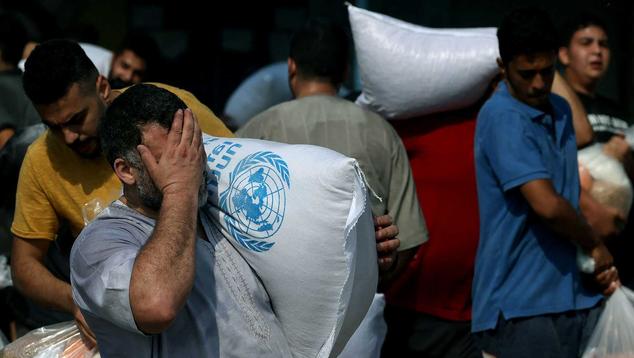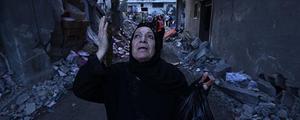Editors’ Note: This article is based on World Poll interviews conducted between July and September in the West Bank, Gaza and east Jerusalem that concluded the week before Hamas launched an attack on Israel. Gallup’s World Poll fieldwork in Israel was scheduled to begin Oct. 9 but was delayed because of the war. Gallup is currently back in the field in Israel and will be reporting the latest data on Israeli opinions as they become available.
WASHINGTON, D.C. -- Thousands of Palestinians stormed food warehouses in Gaza this week, signaling the growing desperation among a population that Gallup surveys show was highly vulnerable before the Israel-Hamas war.
Gaza’s Population Struggles to Afford Basics
Before the recent conflict began, Palestinians living in Gaza were disproportionately struggling to afford food. Twice as many people in Gaza (57%) than in the occupied West Bank and east Jerusalem (28%) said they could not afford food at times in the past 12 months.
The same is true of shelter. The inability to afford shelter matched its record high in Gaza before the conflict, with 29% struggling to afford adequate shelter. While 17% who are struggling in the West Bank and east Jerusalem is lower than in Gaza, it is still high compared with the long-term trend.
According to Gallup’s Basic Needs Vulnerability Index, which measures people’s ability to afford food and shelter and their social safety nets, two-thirds of residents in Gaza (67%) could be classified as highly or moderately vulnerable before the war. Fifteen percent were highly vulnerable, meaning they struggled to afford both food and shelter and did not have family or friends who could help them in times of need.
Vulnerability will now likely be even higher as the conflict rages on and people struggle to find water, food, fuel and shelter.
Anger and Stress High Before Airstrikes
Palestinians were also feeling the strains of daily life before the conflict erupted. More than half of Palestinians living in Gaza (53%) and 40% in the West Bank and east Jerusalem reported feeling a lot of daily stress. Since 2014, daily stress has averaged 54% in Gaza.
Anger was also on the rise. In summer 2023, 44% of Palestinians in Gaza said they experienced a lot of anger the day before they were surveyed. This is the highest level of anger recorded in Gaza since 2018 (48%), when the “Great March of Return” protests began, which called for an end to the blockade on Gaza and the right of return for displaced Palestinians. Thousands of Palestinians were killed and injured in that period.
Anger grew from 31% to 36% between 2022 and 2023 in the West Bank and east Jerusalem, both sites of frequent tension, violence and displacement before the current war in Gaza. From January to September of this year, when fieldwork ended, 2023 had already become the deadliest year on record in the West Bank for both Palestinians (189 killed) and Israelis (25 killed).
Little Hope for Youngest Palestinians Before War
Gaza’s population is among the youngest in the world, with roughly half of its residents under the age of 18. But before the war made their futures even more uncertain, few Palestinians in either Gaza or the West Bank and east Jerusalem said children have the opportunity to learn and grow where they live.
Those living in Gaza have been more pessimistic than other Palestinians for the past decade, reaching 28% in 2023. Since Gallup’s World Poll began in 2005, only countries in conflict such as Iraq, Afghanistan, Yemen, Türkiye, Lebanon, Haiti, the Central African Republic and the Democratic Republic of Congo have scored lower than Gaza in 2023 for being a good place for children to learn and grow.
Bottom Line
Gallup data collected just before the war in Gaza demonstrate that millions of Palestinians in Gaza and the West Bank and east Jerusalem were already vulnerable and unable to afford the basic needs of food and shelter. Measures of stress and anger among both Palestinians and Israelis are only likely to increase given the events unfolding in the region.
To stay up to date with the latest Gallup News insights and updates, follow us on X.
For complete methodology and specific survey dates, please review Gallup's Country Data Set details.
Learn more about how the Gallup World Poll works.




